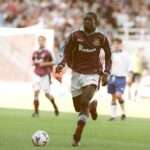More than in any other major sport, non-starters can have a huge impact on the game of basketball. Non-starters can be all-around solid players, as well as players who provide a unique talent — like perimeter shooting, rebounding, or playing solid defense in the paint. And in many cases, non-starters (or bench players) are on the floor for critical minutes at the end of games. This guide explores the many roles that bench players can fill, and offers advice on how to fill them.
An Invaluable Support System
To compete, basketball teams need a group of dedicated, talented bench players for a number of different reasons:
- Filling in for injured starters: Bench players have to be ready to step in and maintain the starter’s level of production and energy.
- Challenging starters in practice: A strong bench can keep the starting five sharp through the course of a long season.
- Representing the future: In many cases, the bench players are underclassmen or younger players who are growing into the role of starter.
- Filling a niche: Bench players have the luxury of watching the game from the beginning to see what the team needs most.
The collective talents of the support players will vary from team to team, but one thing remains constant: Talented bench players make it much easier to win.
Give the Team What it Needs
Bench players have the advantage of watching the game as it develops. A player who pays close attention can more easily spot a particular need — such as stopping a specific scorer, or slowing down transition offense—and then provide it.
Starters don’t have this luxury. They have to battle pre-game jitters and work themselves into the flow of the game. They don’t get a chance to analyze what is happening before entering the game, as bench players do. This is a huge advantage for the role player entering the action.
Mental Edge
Great role players are confident that their time will come. This makes it easier to remain humble and confident while sitting in the bench. In a long season, a prepared, positive, well-conditioned player always makes an impact at some point.
Contributing from the Bench
The goal of a non-starter should be to create, and then fill, a clearly defined role. Players working to establish a clearly defined role should:
- Work hard in practice: Working hard in practice helps maintain conditioning while showing the coaches that playing time is important.
- Be in top condition throughout the season: Fresh legs and hard work coming off the bench are a huge asset for any team.
- Use the off-season: This is a great time for developing an all-around game and grabbing the attention of the coaching staff.
- Ask the coach how to improve: Creating a unique training program with the help of the coach is the best way to demonstrate commitment to the team.
- Pay attention: Watch the game before entering to know what offense and defense the opponent is running, and the tendencies of the player to be guarded.
Many coaches like to tell bench players when they should expect to enter a game, and players tend to learn at what point/in which situations they’ll get called. Recognizing the coach’s expectations helps make it easier to be consistent from one game to the next, avoid uncertainty, and keeps players focused. However, it’s important to be ready at all times to step on the floor and contribute.
Provide Energy
Some coaches keep one or two of their better players on the bench to start the game just for this reason. The nature of a listless game can be completely changed by one or two bench players who come in with tons of energy and hustle.
Energy can also make a big difference against an opponent who has been worn down by the pace of the game, and many bench players commit themselves to providing that energy — and hopefully transferring some of it to the rest of the entire team.
Fun Fact
In 2009, former Los Angeles Laker and long-time starter Lamar Odom accepted the role of bench player for the benefit of the team during its championship run. Eventually, he helped win two National Basketball Association championships and earned the Sixth Man of the Year award in 2011, given to the league’s top bench player.
Help Teammates Improve
Good bench players also work hard during practice to push the starters as much as possible. This helps get the starters—and by default, the entire team — ready for a game. High practice intensity raises the level of the team, and is a great way to make an impact.
Be a Finisher
The best role for most non-starters is that of finisher. The best moments on the floor are the deciding moments, when the game is in the balance and a great play can make all the difference. Bench players must commit themselves to being ready to make that difference through preparation and hard work.



